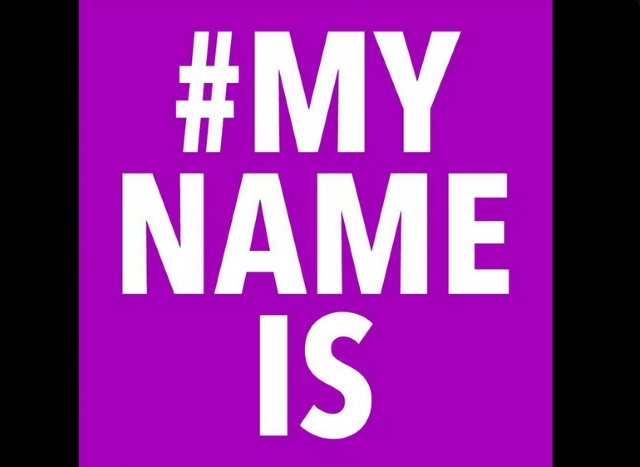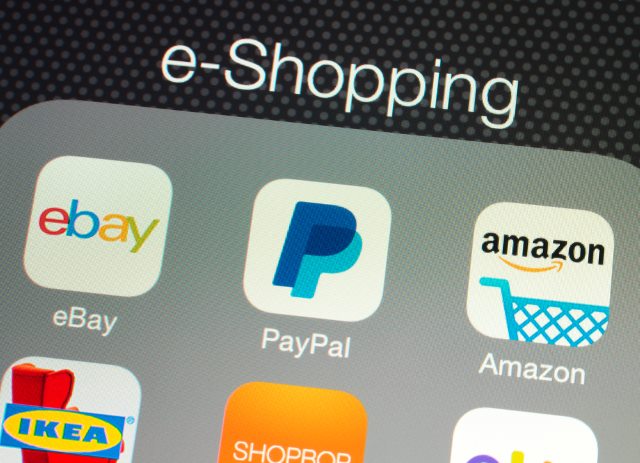
Facebook admits it screwed up, but its proposed research guidelines are meaningless
Facebook is no stranger to controversy, nor is the social network unfamiliar with upsetting its users. It seems as though Zuckerberg's baby has been hitting the headlines for all the wrong reasons lately, and it's not all that long since users vented their fury after it was revealed that their newsfeeds had been manipulated in the name of research. Now the social network says that it was "unprepared for the reaction the paper received when it was published and have taken to heart the comments and criticism" and is now implementing new user research guidelines.
"There are things we should have done differently" may seem like something of a half-hearted admission that mistakes were made, but it's the second semi-apology from Facebook this week. Research into how people use the social network will still continue, but Facebook now says "we want to do it in the most responsible way." So what does this actually mean?

Facebook rolls out mobile Like button to iOS and Android app developers
As any Facebook user knows, 'liking' content online has become almost second nature. Facebook has Likes, Google+ has +1s, and various other variations exist. But it is Facebook's Like button that reigns supreme -- regardless of the privacy concerns it may raise. Today Facebook is expanding its Like feature so that mobile app developers can take advantage of it. Not just content with giving web users the chance to indicate their approval of a particular Facebook post or online article, it is now possible to 'like' any piece of content within a supported app on iOS and Android.
It's a feature that is likely to be picked up very quickly by game developers, so you can expect to see notifications in the near future letting you know that your Facebook friends like level 118 of Candy Crush Saga. The feature was previewed earlier this year, but is now being made available to any developer who wants to use it. Facebook says:

Facebook apologizes to LGBT community, 'backs down' on real name policy
Facebook has issued an apology to "drag queens, drag kings", and the LGBT community for forcing users of the social network to reveal their real names or face having their pages suspended. The social network also bowed to pressure, saying that users will not necessarily have to use their real names in the future. Chris Cox, Facebook's Chief Product Officer, made a statement in an online post that admits the negative response to the policy "took us off guard". Why the sudden interest in real names? It seems that one person may have been to blame.
Facebook caused something of a storm of controversy recently when it forced many users to reveal their real names. Large groups of people were affected by this, but it was a number of drag artists who were most vocal in their complaints -- numerous petitions and campaigns, including #MyNameIs, started up. While it was drag queens who hit the headlines, Facebook's sudden enforcement of its long-standing real names policy also affected performers such as musicians -- fans and friends were confused when seemingly new people appeared in their friend list. Despite the backlash Facebook faced, the social network stuck to its guns, remaining adamant that the policy was here to stay, and dismissing complaints out of hand.

Microsoft launches Sway -- Office's new idea collection tool
Having unveiled Windows 10 yesterday, Microsoft today welcomed a new addition to the fold in the form of Sway. This is the latest member of the Office family and it's being billed as a way to "reimagine how your ideas come to life". What does this actually mean? In many ways, Sway is an extension of OneNote. It's a web-based way to collect content, store images and text, add videos, and generally piece together everything you might need for a presentation, project, or idea. Sway is currently a preview product and, in keeping with Microsoft's "mobile-first, cloud-first world" there's a strong focus on cross-platform compatibility and cross-device syncing.
Sway is an interesting blend of existing Microsoft products, but it also brings in some new ideas. It's integrated with OneDrive, and has the note-taking features of OneNote. The various templates that can be used to present the data that is collected gives it something of a feel of PowerPoint, but it could also be used for very simple planning and project management like a cut-down, accessible version of Microsoft Project. It's all web-based and Microsoft is touting it as a "new way for you to create a beautiful, interactive, web-based expression of your ideas".

eBay and PayPal to split into separate businesses in 2015
A giant of the modern web is to be cleft in twain. eBay Inc is set to split its online payment service PayPal into a separate, independent, publicly traded company; eBay and PayPal will be divided into two in the second half of 2015.
By keeping the auction and payment services at arm's length from each other, eBay will be hoping to breathe new life into the beleaguered selling site. The move comes after a review of the company’s structure and growth strategies by the board of directors, and is described as providing "shareholders with more targeted investment opportunities".

There is no escape -- with Atlas, Facebook ads follow you between devices
How much do you hate ads? How much do ads piss you off? Well prepare to turn into an even bigger ball of hate-filled pissed-off-ness when you hear about Facebook's latest ventures in advertising. Few people would argue against the suggestion that Facebook has all but given up any pretence of being a social network and has become little more than a huge cog in a massive advertising machine. Claims have been made that ads are being made more relevant to users, but the truth of the matter is that users are being made more relevant to advertisers. And Facebook now has a whole new way to follow you around the web to make sure you are delivered even more better-targeted ads.
Facebook has been criticized for forcing users to reveal their real names -- information which is as valuable to advertisers as it is anything to do with security -- and there have long been concerns about privacy settings on the site. Users of Facebook may complain that their newsfeeds are cluttered with news and posts at the wrong time, but one of the biggest issues people have with the site is with ad delivery. Last week we learned that Facebook was on the verge of revealing something "more powerful than what Google can currently do" in terms of user tracking. Facebook has now launched Atlas, an ad platform that can track users as they move from desktop to mobile devices -- and it's sure to raise plenty of privacy hackles.

Bye bye, Facebook. Hello, Ello?
It's very easy -- some would say fun -- to bash social networks. MySpace was a very easy target, and Twitter comes in for criticism from time to time, but it's Facebook that tends to bear the brunt of people's ire. Mark Zuckerberg's social (advertising) network hits the headlines quite frequently, but it's been on the lips of many in recent weeks after starting to aggressively implement its "real name" policy. It's something that initially upset drag artists around the world but it's also something that affecting musicians and other artists who have opted to use a stage name. In recent days another name has bubbled to the surface. It's not brand new, but Ello has been hard to avoid over the last few days. What’s going on?
It's clear that the fallout from the drag artist incident that social network users have been seeking out new homes where they are free to be whatever they want to be. This is something that Ello seems to offer. If you want to hide behind a pseudonym, adopt a different online persona, run multiple account under different names, pretend to be someone else, or just smirk at the fact you can call yourself Farty McPoopButt if you feel so inclined, you're onto a winner here.

Social media becomes a critical marketing channel for holiday sales
Driving sales and increasing the reach of their brand is seen as key to the marketing success of companies, and many are turning to social media to pursue their strategy.
New survey data from marketing software platform Offerpop shows that brands are increasing their investment in social media and focusing on using it to drive sales in the run up to the holiday season.

Panic over! Twitpic is given a stay of execution after a buyer is found
Twitpic will no longer close on 25 September as the photo sharing service has found a buyer. There's not yet any word on who is behind the acquisition, but the takeaway news is that photos should be safe as Twitpic will live to fight another day.
Just a couple of weeks ago, founder Noah Everett posted the news that Twitpic was to close following something of a legal tussle with Twitter. But things have taken a turn for the better. After users scrabbled to download their images to ensure they were safe, it now transpires that the service is not going anywhere.

Cirqle gives you more control over sharing photos and videos
We all have photos and videos that we want to share with other folks. We do it all too often on Facebook, sometimes without even considering that it's a broad audience we are sharing them with, who may not want to, or should not, see all our intimate moments on display.
And let's be real for a minute: not all of us are in awe about someone drunk dancing on video, baby pictures, or mirror selfies (sorry that you had to hear that now) -- some of us may be, sure, but others may be more interested in, just as a totally and completely random example, seeing photos of fast cars (guilty as charged!). For those who want to fully control who can see their photos and videos, there is new app to consider, and it's called Cirqle.

CEOs take to social media to gain business benefits
A new infographic created by social insight tool company Refresh looks at over 1,300 CEOs on social media to determine how they use the technology.
Not surprisingly it's younger CEOs that are most likely to embrace social media, with 61 percent being under 40. Some 89 percent are male though that perhaps reflects the low number of female CEOs rather than their willingness to use social tools.

Facebook celebrates 1 billion daily video views with new view count feature
As demonstrated by the infuriatingly popular #ALS Ice Bucket Challenge phenomenon, video on Facebook is more popular than ever. If you were in any doubt about just how popular these magic moving pictures really are, the social network announces that it is racking up an incredible 1 billion video views every day.
But have you ever wondered how many other people have wasted their time watching yet another video of crazy Russian drivers, drunken debauchery, or amusing animal antics? Wonder no more! Starting this week, Facebook is rolling out a new feature that shows how many views a particular video clip has received.

Facebook to target emerging markets with ads tailored to connection speeds
Equality for all is a utopian ideal, but Facebook has plans to treat its users differently depending on where in the world they are. Specifically, the social network plans to change the way adverts are delivered to people based upon the speed of their internet connection. In a blog post drearily entitled "In High-Growth Countries, Reaching People Based on How they Connect", product marketing manager Brendan Sullivan reveals details of the plans which will make better use of available bandwidth.
Facebook has analyzed internet usage in developing, growing nations, and determined that the majority of people in these areas get online via mobile networks. The speed of connections can vary greatly from place to place leading to a huge variation in experiences. Mark Zuckerberg is already involved in projects designed to help get more people online, but the company is also concerned about keeping advertisers happy. "High-growth countries" offer great potential for income streams, and companies need to be sure that their ads are being seen by the people they target.

Twitpic is closing. You have three weeks to grab your photos and videos
Image and video sharing service Twitpic is closing its doors. Threatened with loss of access to the Twitter API if the company refused to abandon a trademark application, Twitpic has decided it does not have enough clout to take on the microblogging giant. Twitpic founder Noah Everett used a blog post to break the news and give a little background to help explain the move. He stressed that the closure was a difficult decision and thanked users for their support.
The problem seems to stem from Twitpic's name. Everett explains that the company was contacted by Twitter a few weeks ago and asked to give up on the trademark application. The timing is a little strange because, as Everett points out, Twitpic's name has been in use since 2008, and the trademark application was filed the following year. The company managed to fight opposition from some parties, but it seems as though Twitter dealt the killer blow.

91 percent of Americans concerned about online privacy -- 7 percent would change their name as protection
There are lots of reasons to be concerned about privacy online -- not least the spying carried out by the NSA and other governmental agencies. While some companies are trying to stick up for the rights of their customer, many web users have now taken to censoring themselves. New research by WP Engine shows that the level of paranoia is higher than many people may have thought -- a staggering 91 percent of Americans are concerned about their online privacy. This is interesting in itself, but the steps that web users are willing to take if they feel their privacy is threatened makes for particularly interesting reading.
Of course there are some people who would take things to the extreme, going as far as changing their name in a bid to protect their privacy, but others would take slightly less drastic action. In fact only five percent of those surveyed say they would take no action to protect their privacy. The most common reaction to feeling threatened is to change passwords (79 percent of people), but some would go further, admitting they would consider changing their email address (48 percent) or change their credit cards (48 percent). Well over a third of those surveyed (42 percent) said they would be willing to delete all of their social media accounts. Three percent of people indicated that they would even move house as a result of having their privacy threatened online.
